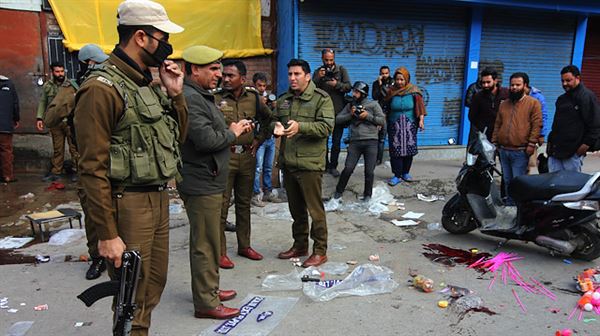The detention of pro-India leaders in Jammu and Kashmir has deprived New Delhi of its only reliable asset in the Muslim-majority state, where an insur
The detention of pro-India leaders in Jammu and Kashmir has deprived New Delhi of its only reliable asset in the Muslim-majority state, where an insurgency has been simmering for decades.
On Aug. 5, India withdrew legislation guaranteeing autonomy and exclusive land rights to the region, riling Pakistan and China. Besides a security and communications lockdown, Indian authorities jailed three former chief ministers; Farooq Abdullah, his son Omar Abdullah and Mehbooba Mufti; several former ministers and Sajad Lone, a former ally of the ruling Bharatiya Janata Party (BJP).
During the only demonstration protesting the arrests, several women, including Farooq Abdullah’s sister and daughter, were detained and let off only after signing a bond that they would never again raise their voices against the abrogation of the special legislation. Another of his sisters is still under house detention.
Farooq Abdullah and two associates in his party, Akbar Lone and Hasnain Masoodi, represent Kashmir in the Indian Parliament. They have yet to resign.
Farooq Abdullah, two-time chief minister of the state, had previously said Kashmir’s relation with India would cease to exist if its special status were to be withdrawn.
Echoing him, Mehbooba Mufti had warned that “no one would be left in Kashmir to raise the Indian flag” if the special status was breached.
So, what led the Indian government to virtually overthrow its own support base and risk political vacuum in the insurgency-ridden region?
One factor was that pro-India politicians were the only ones left to oppose the scrapping of the special status, as separatist leaders are currently in jail and a security lockdown has made public uprisings nearly impossible.
Also, if pro-India politicians were able to mobilize international support regarding this latest move, it would have been difficult for the Indian state to call five of its own parliamentarians “proxies of Pakistan”, as separatists are frequently referred to.
While earlier governments, mostly led by the Congress party, would skirt around such tricky situations through diplomacy, the ruling BJP intends to structurally alter the way the state is governed.
In fact, the party declared its intention to do away with the special legislations the day it formed a coalition government with Mehbooba Mufti’s People’s Democratic Party (PDP), apparently irked of any Kashmiri political party harboring even sub-nationalistic agenda or engaged in identity politics.
– New blood
According to retired law professor Sheikh Showkat Hussain, the BJP wants to introduce a new class of politicians who can counter separatist sentiments in the region.
“Like the British, India too had manufactured and nurtured a class of collaborators. Collaboration is always rewarded and collaboration becomes an alibi for corruption. What the BJP wants to do differently is to create a class that would unequivocally endorse the Indian policies on Kashmir,” he said.
“But the earlier class of pro-India politicians still had some weight. The BJP is clutching at straws. The new crop of individuals they are banking on are nobodies,” Showkat added.
However, according to BJP Jammu and Kashmir general secretary Ashok Kaul, the party has a plan.
“You will see that within six months or a year, genuine pro-India voices will emerge from Kashmir. We will make it happen through good governance, building schools and hospitals. Our party will be in the front seat now. There will be our chief minister,” he said.
Asked by Anadolu Agency for the names of three potential pro-India leaders from his party, Kaul said: “There will be leaders. Their stature might not be big but it will happen.”
Kashmir, a Muslim-majority Himalayan region, is held by India and Pakistan in parts and claimed by both in full. A small sliver of Kashmir is also held by China.
Since they were partitioned in 1947, the two countries have fought three wars — in 1948, 1965 and 1971 — two of them over Kashmir.
Some Kashmiri groups in Jammu and Kashmir have been fighting against Indian rule for independence, or for unification with neighboring Pakistan.
According to several human rights organizations, thousands of people have reportedly been killed in the conflict in the region since 1989.
